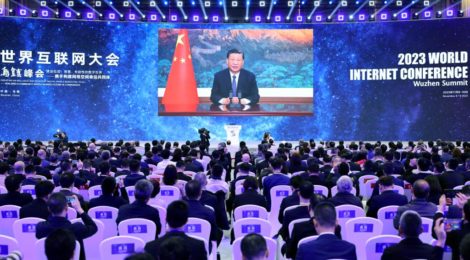
World Internet Conference 2023 – Building a community with a shared future in cyberspace
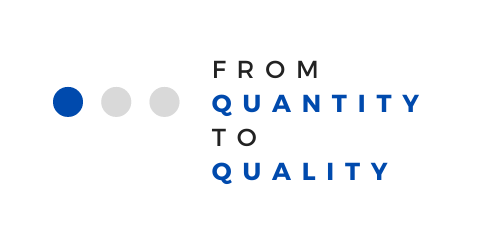
Introduction to the event
The “World Internet Conference” (in Chinese “世界互联网大会”), also known as the “Wuzhen Summit,” is held annually in the city of Wuzhen, in the Zhejiang province, and is organized by the CyberSpace Administration of China and the government of the Zhejiang province to discuss global issues and policies related to the Internet. It is one of the key events in the Chinese science and technology season and is capable of attracting significant attention not only at the national but also at the global level.
The first edition took place from November 19 to 21, 2014, drawing prominent figures from the digital world from nearly 100 countries, representing the first conference of its kind in the world (and naturally in China). Since then, every industry expert looks to Wuzhen to understand the evolution of the digital market, and the innovations presented in November each year can have far-reaching regional and international applications. One of the international guests was recently Elon Musk, active in China for several years and attentive to Chinese innovation dynamics, with a “Tesla Gigafactory” in Shanghai (not far from Wuzhen) producing tens of thousands of electric vehicles annually for the Chinese market.
The 2023 edition was the tenth of the event and represented an opportunity to take stock, look back on what has been achieved in a key decade for Chinese digital growth and innovation, and also to relaunch and project into the future of China as a global technological powerhouse.
Indeed, the Internet has completely transformed our lives, for better or for worse, on a personal, professional, and international level. Xi Jinping, in power since 2012, and his administration have massively promoted the country’s digital evolution, aiming to make China a hyper-digitized country with the goal of using digital technology to foster economic development and lift millions of citizens out of poverty. The new leadership saw the Internet from the outset as an extraordinarily powerful tool to address the longstanding issue of inequality, which undermines balanced and homogeneous development in a complex society distributed across a continental space like China’s. At the same time, in a regime like China’s, the Internet can become a tool for control and management of consensus and dissent, as well as touching on issues of national security and China’s impact on the world (there has been much talk in this regard of the Digital Silk Road).
Wuzhen, an ancient and charming city, is a typical example of a river town south of the Yangtze. The city was founded more than 1,300 years ago, while the earliest human settlements in this region date back over 7,000 years. It covers an area of 110.93 square kilometers and is home to 110,000 people (not a large number according to Chinese standards, where megalopolises with tens of millions of people play a key role in the country’s development). Wuzhen is classified by the national government as a 5A scenic spot, one of the first national historical and cultural cities, and one of the 10 most charming cities in China, earning the reputation of the “Last Riverside Town in China.” Since the first World Internet Conference in 2014, Wuzhen has become a landmark for those involved in the internet, as well as a place to understand where China and its tech industry are heading.
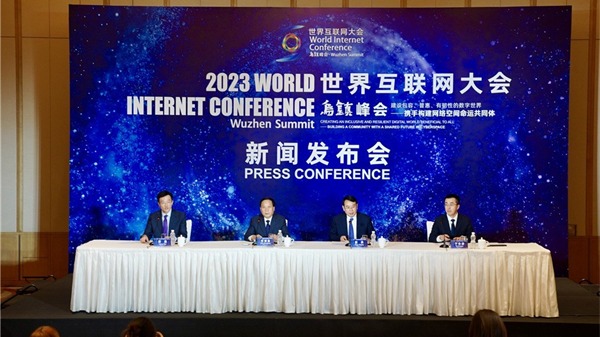
The 2023 Edition
President Xi Jinping sent a greeting message to the Summit, emphasizing how China focuses on developing a Global Strategy on Artificial Intelligence and how Wuzhen has become over the years a platform for global digital exchanges and cooperation through dialogue and sharing of practices and technologies. For Xi, the internet can contribute to economic development, serve as a tool for national and international security, and connect diverse cultures and stories. The goal should be to build a community with a shared future in cyberspace, more inclusive and prosperous, relying on a digital economy. An interesting reference was also made to the construction of a peaceful cyberspace, avoiding confrontation and thus preventing an arms race in this new global dimension where major powers may compete.
The theme of the 2023 edition was focused on creating an inclusive and resilient digital world that can be beneficial for everyone and establishing a community with a shared future in cyberspace.
The extensive and varied program included a plenary session held on November 8 and numerous other sub-forums covering topics such as cybersecurity, the creation of a digital economy and industrial cooperation to strengthen it, digital law and its governance, the key role of digital entrepreneurs, the role of artificial intelligence in enhancing industrial development, and the potential of digital technology in reducing poverty and inequality.
Several side events at the Conference showcased the potential of this event and its great organizational capabilities. One notable event was the “Light of Internet Expo,” which focused on new digital products and technologies and the main achievements in China’s internet field in recent years, aiming to demonstrate how the internet can be a disruptive force in the development of human civilization and create a shared future of prosperity (the Expo, inaugurated during the conference, will be active for a year featuring about 500 national and international companies).
The Expo included thematic exhibition areas and innovation and entrepreneurship in the fields of digital technology, digital rural areas, digital culture, and tourism. CEOs and representatives of global Chinese companies such as Huawei, Alibaba, Tencent, Kaspersky, and China Electronics Technology Group participated in panels and presented their results and innovations to the public.
More than 40 companies and platforms participated in the “Light of the Internet” Expo, covering sectors such as smart driving, internet platforms, and big data applications.
Zhejiang Moyun IoT Technology Co., Ltd. from the Tongxiang Economic Development Zone exhibited for the first time and presented its automatic business conditions monitoring system and a digital platform for key energy-consuming enterprises.
Another notable event was the inauguration of the Wuzhen Global Internet Technology and Science Museum, covering an area of 18,000 square meters, and a total of 43,000 square meters of usable space. Finally, during the Conference, the second “China-ASEAN Information Harbor” dialogue took place for the construction of a digital Silk Road.
Of great interest to attendees was the publication of a volume titled “Charm of Science and Technology,” which included the major technological projects of the past year. The book serves as a compendium of Chinese technological growth, divided into three parts: Basic research, key technologies, and engineering and development projects. Each presented project was detailed, listing the main contributors, technologies used, and achieved objectives.
Main Objectives of the Event According to the Organizers
The 2023 edition had several missions, summarized below:
- Promote industrial digitization and digital industrialization: Accelerate the construction of the global Internet infrastructure and promote poverty reduction worldwide, in line with the Sustainable Development Goals of the 2030 Agenda. The goal is to bridge the digital divide, focus on building skills, and enhance digital literacy for all citizens.
- Facilitate dialogues on global Internet governance: Foster discussions among stakeholders on crucial issues related to global Internet governance.
- Address cybersecurity challenges in cyberspace: Establish an effective collaborative mechanism for maintaining Internet security and play a positive role in building a safer and more stable cyberspace.
- Build an online platform for cultural exchanges and mutual learning: Promote the use of digital technologies to better protect the achievements of human civilization, enhance mutual trust, and encourage cultural exchanges, especially among young people in cyberspace.
- Facilitate open cooperation and collaborative innovation in network technologies: Organize WIC members to participate in exchanges, dissemination, and practices related to visions, requirements, and standards of Internet technologies. Promote the cultivation of cutting-edge technologies and the transformation of scientific and technological achievements.
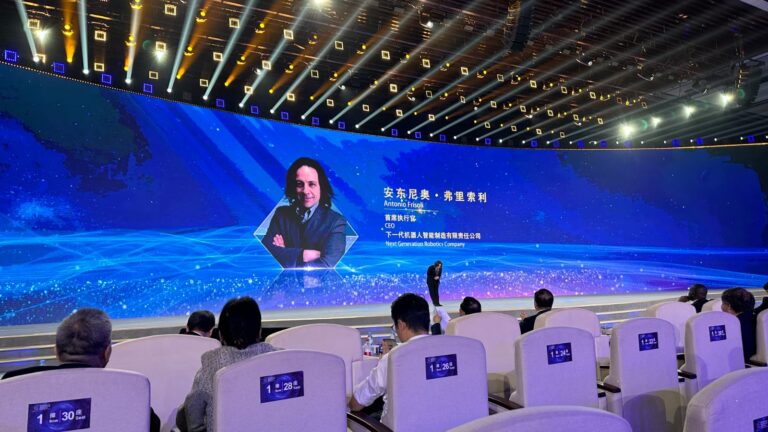
Our Experience at the Summit
Our team was present in Wuzhen, representing the company Next Generation Robotics, and specifically showcasing the “Argo” project. We want to highlight three elements that left a lasting impression on us this year and that we would like to share with the readers.
- Quality of Chinese Events: As Italians/Europeans, we were impressed by the quality of Chinese events. Everything ran seamlessly in Wuzhen. We were struck by the attention to detail, the synchrony of various actors and guests, and the well-organized alignment of plenary sessions, sub-forums, and additional activities, making this forum highly commendable in our opinion.
- Leadership Commitment and Impact: Similar to various aspects of Chinese society, when Chinese leadership decides to invest and take a stance, the numbers and final results are massive. In this regard, Wuzhen saw the presence of the country’s leading digital entrepreneurs, and the ongoing digital fervor, the momentum in this specific sector, the outlined strategies, sometimes almost utopian goals, and the involvement of leadership were clearly evident.
- China as a Technological Superpower: China is, in fact, a technological superpower. In various fields such as robotics, artificial intelligence, and digital innovations in industry, thanks to investments, projects, and the direct implementation of leadership’s will, the Chinese train is moving at a great speed. This was evident in Wuzhen. In this sense, it is advisable, in our opinion, not to close our eyes to this reality but to study it and learn from any best practices and strategies that have worked. Hence, a continuous and effective international presence at such events is crucial. Understanding where China is heading and how it is developing is useful primarily for ourselves.
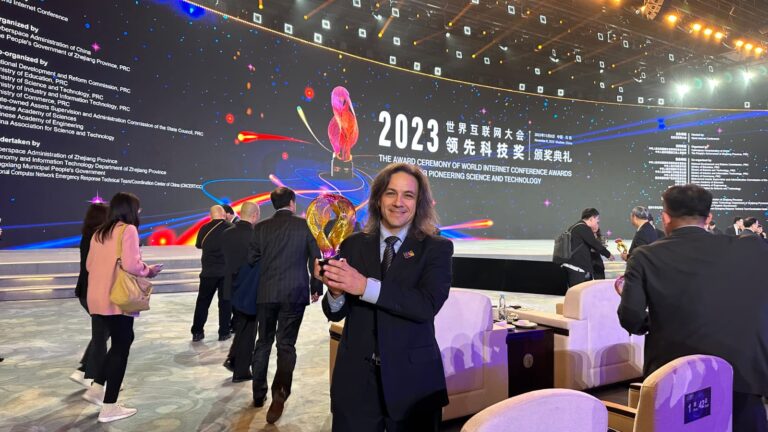
The theme of the Chinese internet – Some recommended readings
It is important to remember that the internet in China is a discussed and controversial topic. Not being experts in the field, we allow ourselves to recommend some useful readings to understand more.
- The first work we recommend is “Surveillance State,” published by Bollati Boringhieri and written by Josh Chin and Liza Lin, two American investigative journalists. They describe in great detail the evolution of internet management in China in a captivating mix of futurism, utopia, and, at times, concern. The analysis of the potential of Chinese technologies on a national and international level is very interesting and comprehensive.
- Another book that “opens the eyes” to the complexities of the Chinese web is undoubtedly “Red Mirror” by journalist Simone Pieranni. In this book, the recent technological evolution is analyzed with great insight and detail, covering topics such as mega-apps, electronic payments, and widespread innovation.
- Finally, a very recent book is “TecnoChina” also by Pieranni, which traces the history of Chinese technological innovation in recent decades. It allows a clear focus on the role of leadership in a large ongoing digital march that will undoubtedly shape the future of each of us.
Written by Marco Bonaglia and Antonio Frisoli



